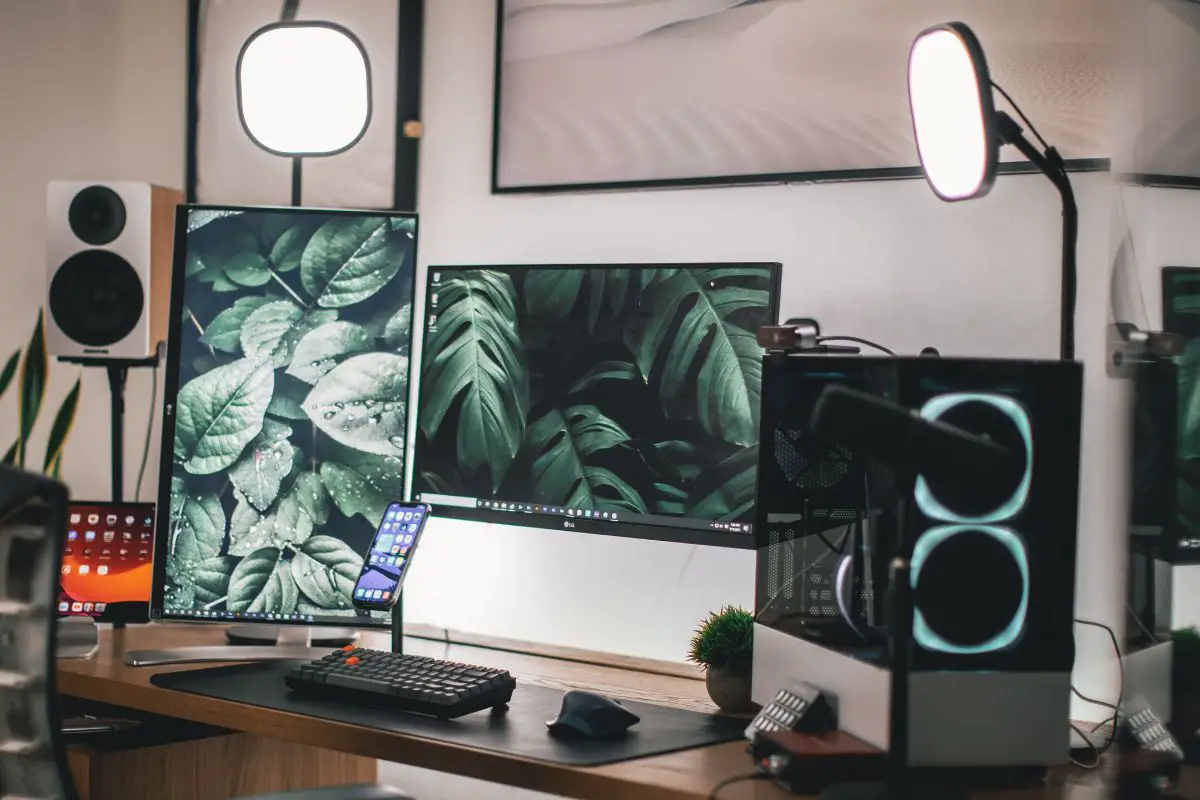
If you notice that your computer is running louder than you like, there are tips you can follow to make your PC quieter. You can clean your fans to keep temperatures and fan speeds down, you can switch to SSDs instead of mechanical drives, you can remove case fans that aren't necessary, and you can even add sound insulation to your case.
I remember going to my friend's house and hearing his PC roaring. He said it had really started to get on his nerves but he had no idea how to make the computer quieter. Fortunately for him, at his request, I was back the next day to make a lot of changes, and there was an instant difference in his computer's noise levels.
So, if you're trying to find out how to make your PC quieter, this guide will tell you absolutely everything that you need to know. Let's get straight into it.
Contents
Now, it's no fun having a noisy PC. It can be quite annoying to have your computer humming in a silent room, or having to turn your music or movies several notches higher to be able to hear them over your noisy computer fan.
The good thing is that there are several ways to address the computer components that can lead to a noisy computer. These tips can help you reduce noise by a lot.
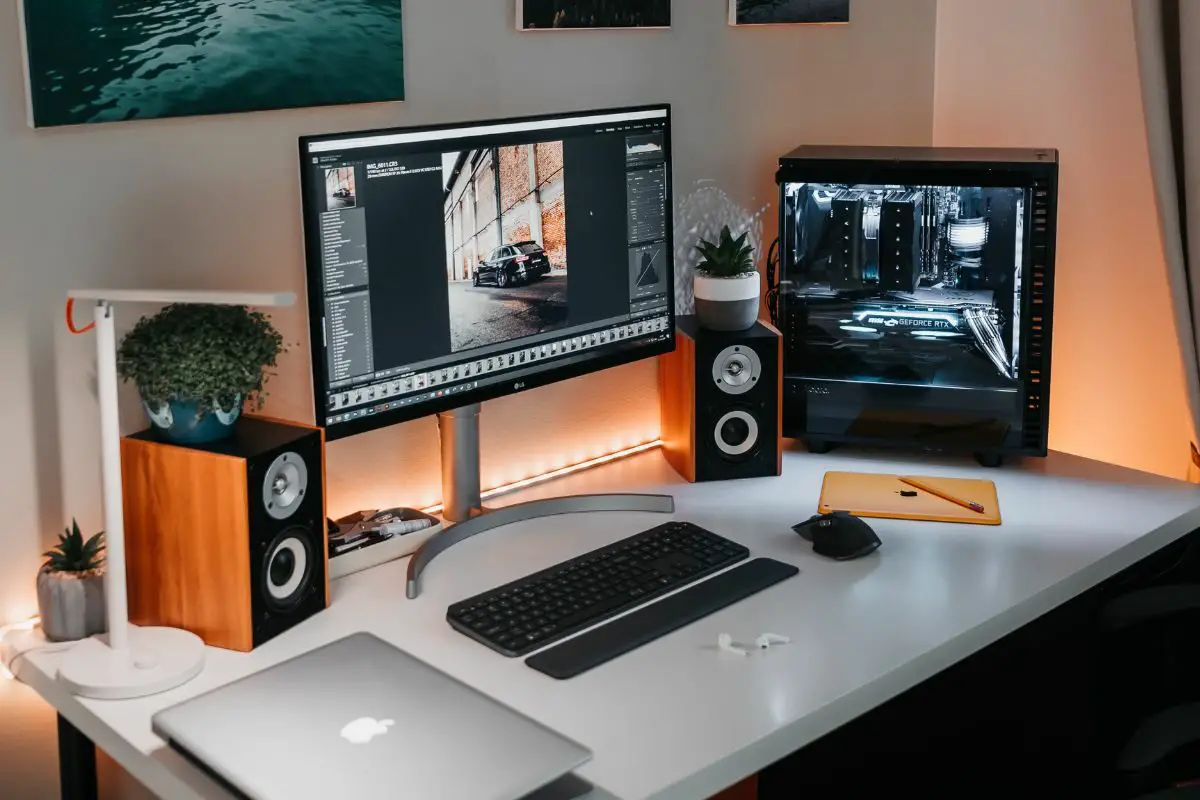
The first step I always advise if you want to reduce noise from your computer is to clean your PC's fans. Not just that, free the inside of your PC case from as much dust as you can.
When your PC's fans have a lot of dust build-up, they don't cool nearly as well as they normally would. This means that your system temperatures climb.
To compensate for this, your fan speed increases, but all that dust means they can't cool as effectively, and this basically leads to system temperatures that stay unnecessarily elevated and case and CPU fans that stay maxed out and noisy.
Cleaning this dust build-up can be the easiest way to drop your computer noise level. Here's what you need to do to clean PC fans effectively:
For your CPU cooler, you can also blast the heatsink or radiator to make sure that it can cool your processor as efficiently as possible.
Also, try and get rid of any dust that has built up inside your computer case. Canned air and a toothbrush tend to be enough for this.
If your computer has dust filters, you can clean those by gently rubbing them with a toothbrush and using a few quick bursts of canned air to get rid of the loosened dust.
Although they are more expensive, I'd generally recommend that most PC enthusiasts make the switch from mechanical hard drives to solid-state drives (SSDs) to store data.
Not only are they much faster, but they use less power, will last longer, and make almost no noise.
SSDs are more expensive, so that should always be considered, but they can help you get rid of the whirring sound that mechanical drives can add to what would have been an otherwise quiet PC.
Your desktop PC might be begging for new fans, especially if you have had it for a long time. An old fan or a failing fan can start to work less efficiently than when you just got it, and this can sometimes lead to rattling or other annoying sounds.
I recommend that you upgrade your old fans to newer models when you can. Some fan models are made with quiet operation in mind, so these can be perfect if you're looking to put together a build that doesn't make as much noise.
Also, ensure you go for PWM fans, as you can control how fast these spin. Non-PWM fans can either be off or running at full speed — there's no in-between.
A good way to buy fans that won't make excessive noise is to stick as close to 25 dB as you can. The be quiet! Pure Rock 2 Black is a good choice for a CPU cooler, and if you're looking for a case fan, you can try out the Noctua NF-P12.
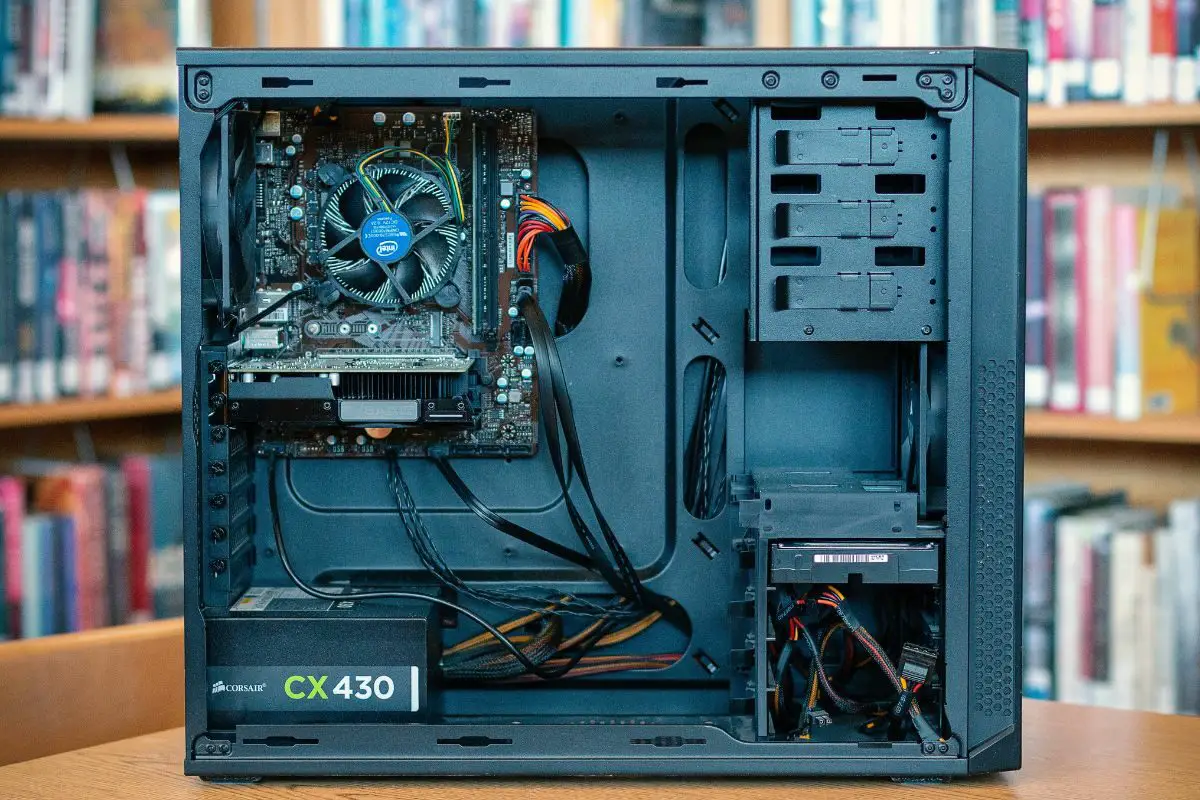
The more fans that your PC has running, the more the sound level of your computer goes up. It can be just noticeable when they are spinning leisurely, but when the fan speeds max out, it can get notoriously loud, especially if you have a lot of fans.
You might not need all of those fans in your computer though. If you're not busy doing anything that will drive up your GPU or CPU temperature all the time, you might be able to get rid of one or two fans in the case (that's if you have them in the first place).
Getting rid of a fan can be a pretty easy way to make your computer quieter. However, you have to monitor your temperatures after doing this, to make sure that you're still running suitably cool.
If you have a PWM fan and you know what you're doing, you can manually adjust how fast the fan goes. This is great because it gives you direct control over the PC component that usually makes the most noise.
My favorite app to use to adjust fan speed is called Fan Control. Follow the steps below to get the hang of how to use it:
If you're an advanced user, you'll be glad to know that the app supports graph-based fan control, which can give you more power over how your fan moves at different temperatures.
When you've done your best to sort out the biggest noisemakers in your computer, you can further reduce how much sound you hear from the outside by using sound insulation.
Most people won't need to go this far, but if you want your PC to run like a whisper, after doing the other things in this list, this can be a pretty cool option.
Installing sound insulation is easy. Switch off and unplug your computer, and then pop the side panels off.
You can use sound-dampening foam like this option from SilverStone Technology. You simply peel the paper back to expose the adhesive and stick it on the inside surfaces of your computer case.
If you have glass side panels, you probably won't want to stick them to those, which is fine. But it will reduce how effectively the noise can be dampened.
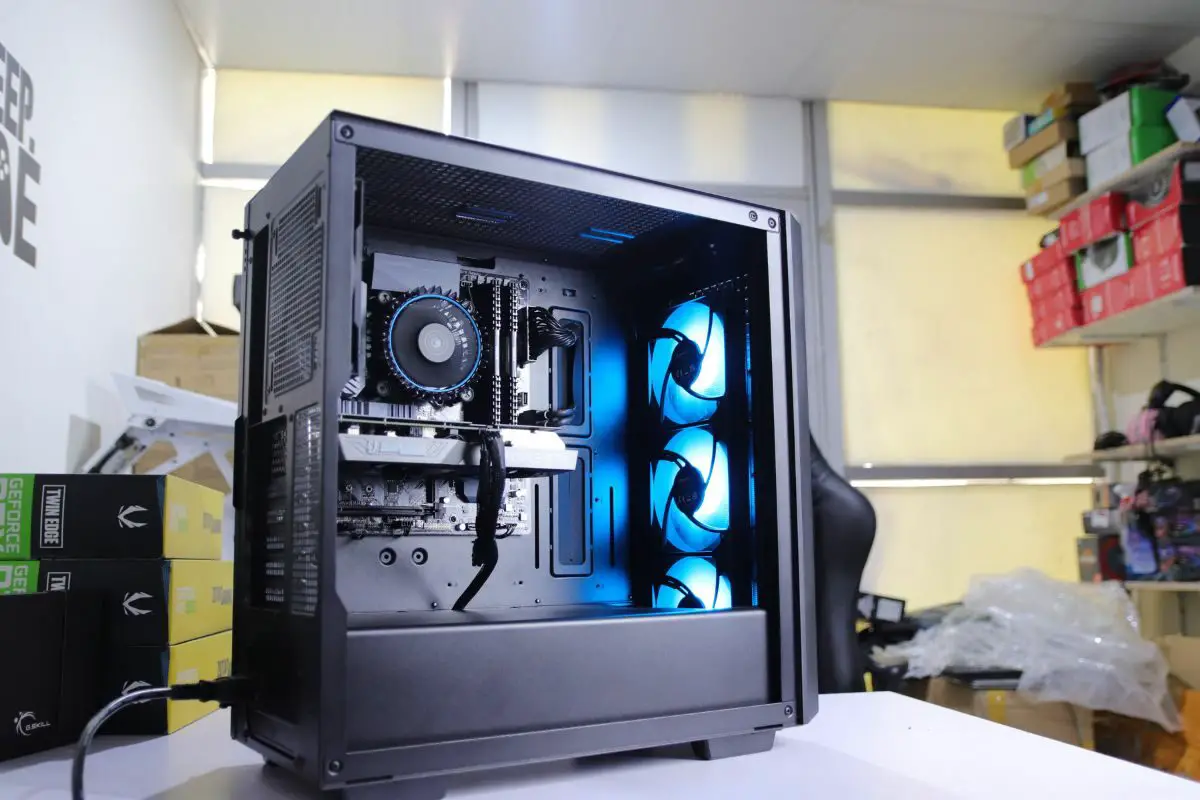
Heat can push your computer's fans to run a lot faster than they need to. By keeping your computer in a reasonable temperature environment, you can make it run a bit quieter.
This means you should keep it away from direct sunlight and other electronics, and give it enough space away from walls to allow for proper intake and exhaust of air.
Make sure that there's nothing loose in your computer by tightening all screws, brackets, panels, and so on.
When your computer runs, it can vibrate, and this vibration can make loose components shake around, which will only add more noise to your PC.
Although your power supply isn't the usual culprit if you hear a buzzing noise from your computer, they can cause coil whine occasionally.
There's really no fix to this though. You can try a different power supply unit to see if you get less coil whine, or you can upgrade to a higher-capacity unit that will be less likely to be near its maximum load. However, this option can be costly.
The same applies to your GPU, though it's hard to ever be certain of whether a card will have coil whine or not. It's a gamble.
It is also important to know the most common reasons for your computer to run loud in the first place.
Once you have these in mind, it becomes easier for you to pinpoint which applies to your computer, and this can help you tackle the cause a lot quicker.
By far, the biggest contributor to your computer's noise levels is fan noise. The average PC fan can make thousands of rotations in a single minute and this tends to come with an audible amount of noise as a side effect.
It can be even worse when you have more than just CPU fans. Some PC builds have case fans as well, and when these all come together, it can result in a noisy system.
If you have a bulky GPU with three fans, these can also contribute to your PC noise, especially when running graphics-intensive games.
Also, keep in mind that the temperature of your system can contribute to this, as your fans will have to run faster to try and keep temperatures down.
Hard disk drives are one of the few components in your PC case with moving parts. In this case, on average, the platter can make around 5000 - 7200 rotations per minute. As a result, they can make an audible contribution to noise levels. This is especially true if you have more than one drive.
When hard drives start to go bad, they can even add a clicking sound to the mix, instead of just the usual whirring.
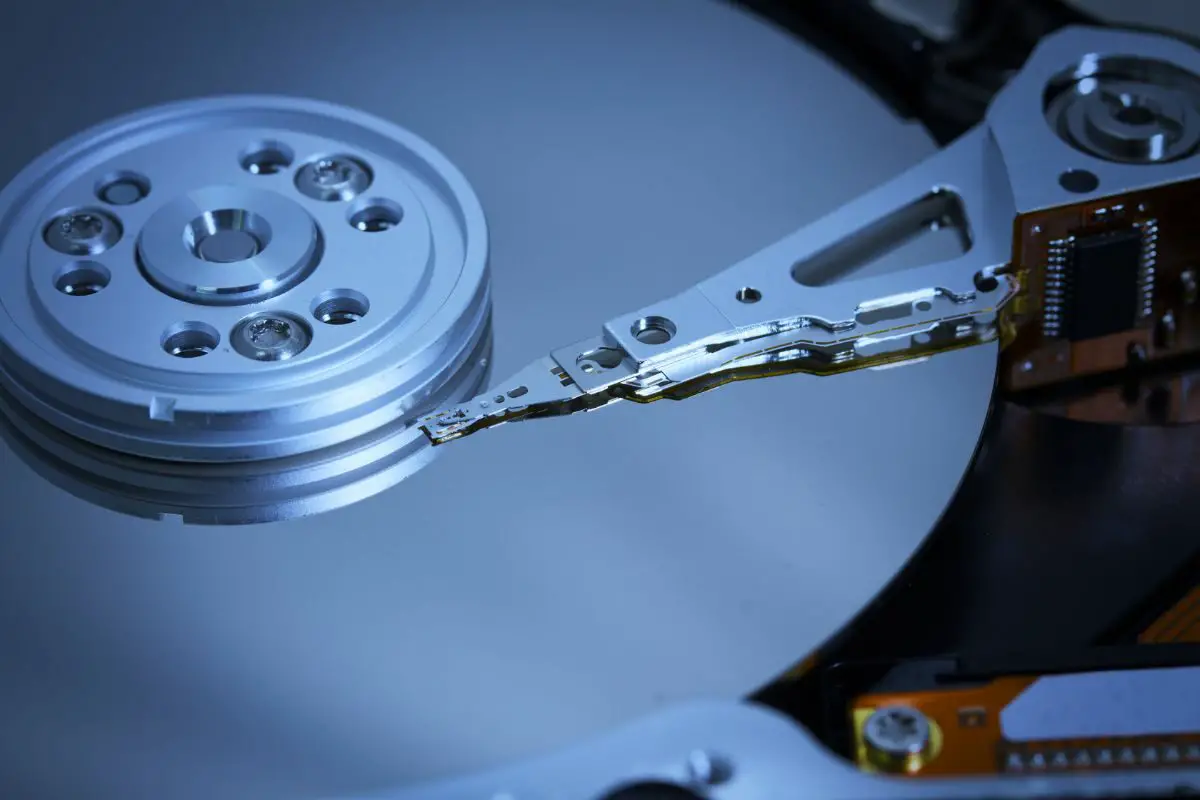
Don't be fooled into thinking that the only things that can lead to PC noise are components with moving parts. Even electrical components can produce sound, especially when channeling very high currents under load.
This is called coil whine and it can sound like a humming, whining, or even rattling sound. It is caused when the electrical components inside your hardware start to vibrate extremely fast due to high levels of electricity running through them.
Your computer's power supply unit and graphics card are the two most common parts that can experience coil whine. You'll usually notice this when gaming, rendering, or editing video.
Coil whine isn't exactly normal, but it doesn't mean that your hardware is defective. It can be annoying to have to put up with though, and an identical hardware model may not have the same problem.
The noise in your computer can be caused by your fans, especially when they are running at top speed or if you have a lot of them. It can also be caused by mechanical hard drivers or coil whine from the power supply unit or graphics card.
Fortunately, there are steps you can take to reduce computer noise. You can clean the dust off the fans and the inside of the PC, as well as clean the dust filters. Then, you can upgrade to quieter fans or use an SSD to store data instead. Apps like Fan Control can give you direct access to how fast PWM fans spin. You can even put sound-insulating foam inside your case.
Was this article able to show you how to make your computer run a lot quieter than it currently is? If so, take a look at our related articles to learn other cool things.
